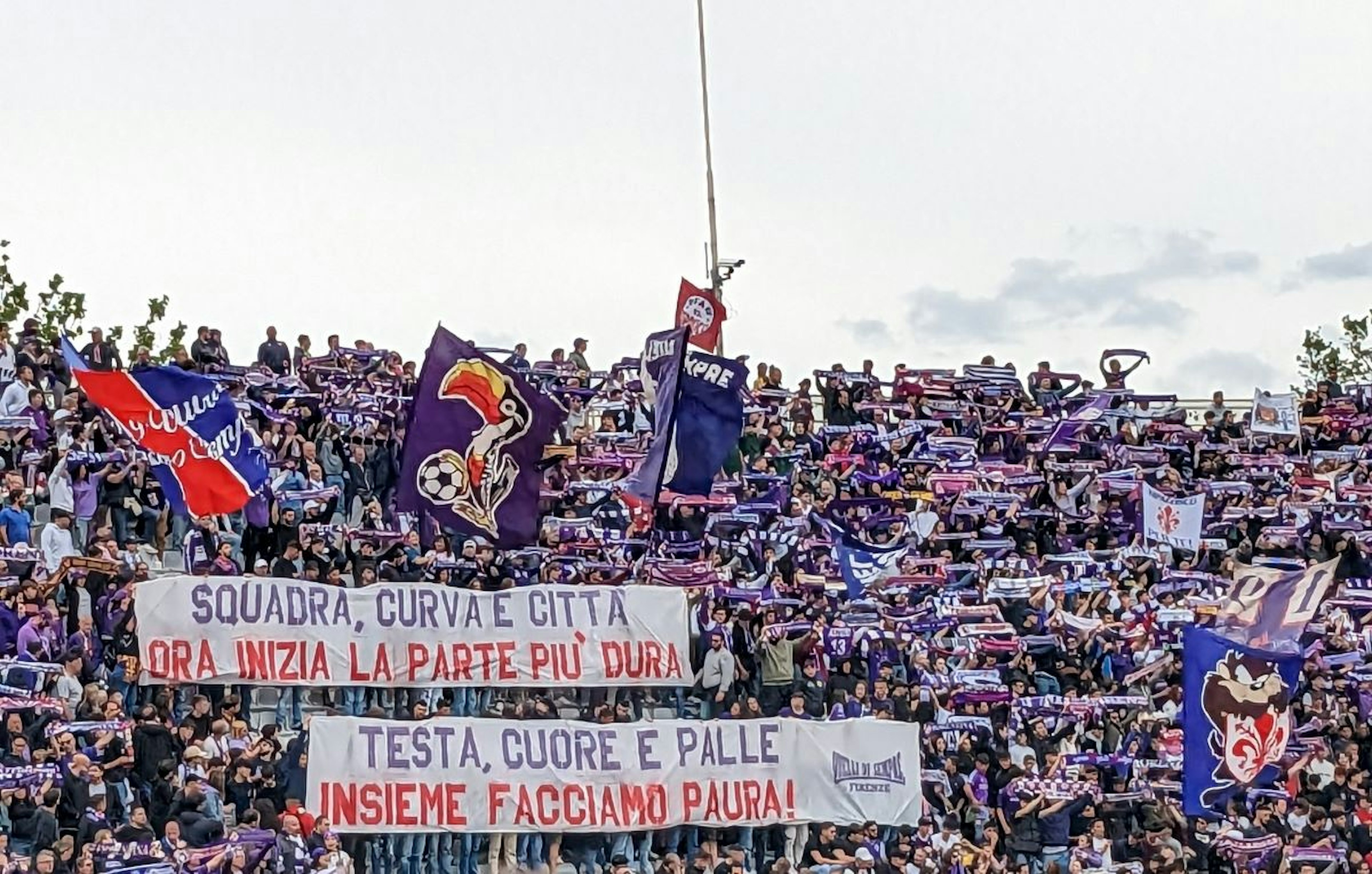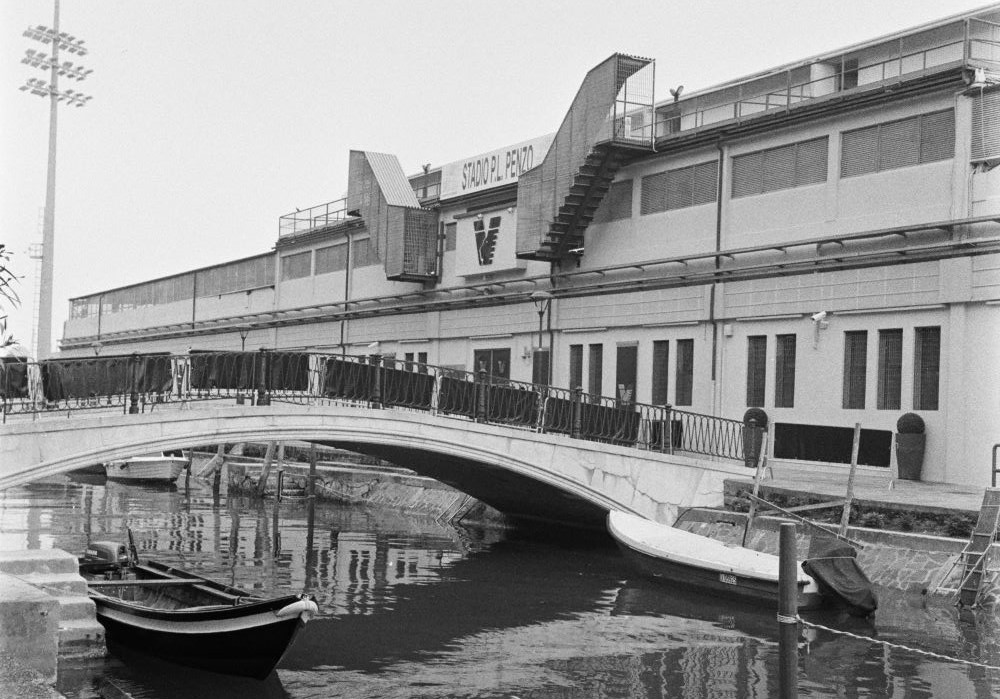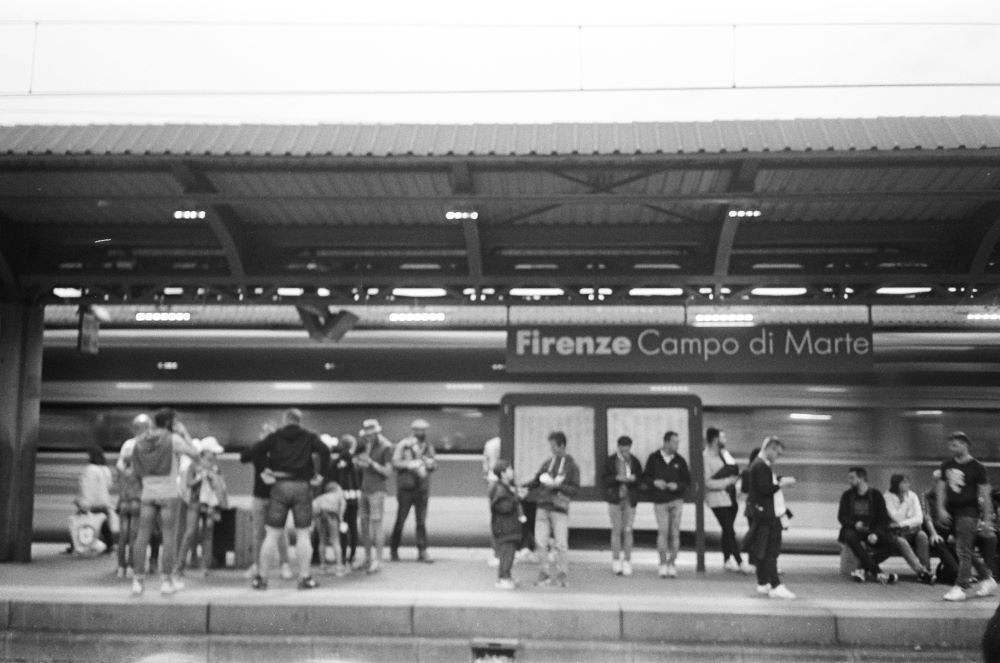Fiorentina: The Rise of Vincenzo Italiano

Stood on the touchline at Stadio Olimpico as his Fiorentina team took an early lead in the Coppa Italia final, Vincenzo Italiano had come a long way from coaching amateur football in Padova. While his Viola eventually lost 2-1 to Inter that night, their coach’s stock has risen rapidly in the past five years.
Now with a UEFA Europa Conference League final against West Ham to play, Italiano has another chance to lift his first piece of silverware and, intentionally or not, audition for more ‘prestigious’ jobs. Linked with Napoli and undoubtedly under the watchful eye of other clubs, Fiorentina’s resolve may be tested this summer.
Born in Germany in 1977, he moved to his parents’ hometown of Ribera in western Sicily as a baby. After making his senior debut for Partinico, aged just 15, he signed for Trapani and launched into a twenty year playing career.
Italiano racked up appearances at Hellas Verona, Genoa, Chievo, Padova, Perugia and Lumezzane across those two decades, known as a playmaker with great tactical intelligence and a handy free-kick taker.
Having completed coaching courses at the legendary Coverciano in Florence, Italiano joined Venezia as assistant to Alessandro Dal Canto in August 2014, but lasted only two months, with Dal Canto sacked as the team faltered in Serie C.

Venezia's stadium, Pier Luigi Penzo. (Credit: Niamh Nevin)
After a year coaching the youth team at Vigontina San Paolo, a semi-professional side based just outside Padova, he earned his first head coaching position, becoming the club’s manager ahead of the 2016-17 Serie D season.
Italiano resigned after five months, with the team second last in Serie D, citing ‘irrevocable differences’ with those in charge, but returned two months later as they limped towards relegation to Eccellenza.
Still, his exploits there were enough for him to move across Veneto to take the job at Arzignano Valchiampo, a side with whom he reached the 2017-18 Serie D playoffs, before he returned to Sicily and to his old club Trapani.
At Trapani, he had his first taste of professional coaching. They had been promoted to Serie B in 2016, but were relegated the following season and had just lost in the Serie C playoffs before Italiano arrived.
He took Trapani back to Serie B, powered by striker M’Bala Nzola, a player he would later sign at Spezia, the club he left the Sicilians for in the aftermath of promotion.
A rocky start at Spezia had the club’s fans calling for Italiano’s head, having won just four points from his opening seven games, a run which included a 4-2 loss at Trapani. Before a trip to Pescara in week eight of the season, he openly pleaded to the supporters to back him and a 2-1 win on the Adriatic gave his team the momentum to turn their season around.
A thirteen game unbeaten run between November and February pushed Spezia into promotion contention, just as the COVID-19 pandemic began to take hold in Italy. The Serie B season was suspended with ten games remaining and it would be three months before another ball was kicked.
After the restart, Spezia picked up 17 points and finished 3rd (top playoff seed). After turning around a 2-0 first leg defeat against Chievo in the semi-final, Spezia beat Frosinone and achieved promotion to Serie A for the first time in the club’s history.
Italiano achieved all this while completing his UEFA Pro licence coaching course, writing a thesis titled: “Transition from player to coach. What to remember and what to leave behind”.
Spezia overachieved in their first Serie A season, finishing 15th despite being tipped for relegation, but Italiano left at the end of the season, much to the chagrin of his employers who felt they had been betrayed.

Fiorentina fans wait for the train (Credit: Niamh Nevin)
His destination was Fiorentina, a huge leap forward in the career of a young manager who had worked his way up the calcio pyramid. He is the only coach in Italy to win playoffs in consecutive seasons at Serie B, C and D level, but a huge task stood in front of him now.
Fiorentina had spent the past four years massively underachieving and had changed hands, with Rocco Commisso buying the club from the Della Valle family, who had taken a bankrupt club and returned them to European football, but had stagnated before they decided to sell up. Commisso himself hadn’t been able to kick the club into gear, so he turned to an exciting young manager.
Italiano inherited a squad better than a 13th place finish suggested and added attacker Nico Gonzalez from Stuttgart. Having a squad with greater quality, he was able to tweak his aggressive 4-3-3 from Spezia to suit being the protagonist more often. He has employed a very high defensive line at Fiorentina and pushes his players to press more than Spezia did, where they would have sat slightly deeper, while remaining proactive and keen to counter.
Despite losing top scorer Dusan Vlahovic to Juventus mid-season, he guided Fiorentina to 7th and guaranteed a return to Europe for the first time in five years, qualifying for the Europa Conference League.
In bulking the squad out a little, Fiorentina prepared for a battle on three fronts this season. League, cup and Europe. By mid-February of this year, they were 14th in Serie A but in a Coppa Italia semi-final and the last 16 of the Europa Conference League. Naturally, there were some questions around the club’s patience with their coach, but it would have been ludicrous to even consider sacking him.
By beating Hellas Verona 3-0 after dropping to 14th, Fiorentina started a run that took them to two finals and up to 8th in the league. This level of performance had been coming all year, if you were to look at the ‘underlying numbers’ and it was merely the failings in both penalty areas that had prevented them kicking on.
Converting chances has been a problem since Vlahovic left and his replacements, Arthur Cabral and Luka Jovic, have flattered to deceive (although the former has improved measurably this year).
Fiorentina’s dominance of possession should have equated to a great defensive record, but momentary lapses have cost them dearly this season. The Coppa Italia final was a great example, a game where Fiorentina had greater chances but were stung by Lautaro Martinez, who got the better of Nikola Milenkovic and Lucas Martinez Quarta for both goals.
Their opponents in the Europa Conference League final are certainly not at Inter’s level, but West Ham are not to be underestimated. Physically dominant and dangerous from set-pieces, as well as on the counter, they are set-up well to combat a Fiorentina side that has shown a soft underbelly at times.
Italiano has shown an ability to adapt this season, as referenced against Inter when reverting to a 4-4-2 while chasing the game, even if they spurned several chances to equalise. He will need to show similar flexibility and the ability to act decisively in Prague on Wednesday night if Fiorentina are to lift their first major trophy in over two decades.
Should he navigate his Viola to a historic victory in Europe, he might just propel himself into the dugout of a top side, but maybe he fancies another year in Florence. Who wouldn’t?